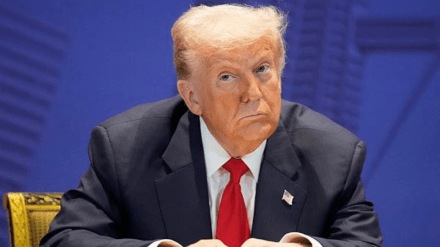While US President Donald Trump has maintained a strong stance against India for purchasing Russian oil, he doesn’t seem to have the same problem with China. During his much-talked-about meeting with Chinese President Xi Jinping on Thursday, Trump said that the topic of oil did not come up at all. “We didn’t really discuss the oil,” Trump said. “We discussed working together to see if we could get that war finished.”
Since there was no real pressure put on Beijing, oil will likely remain a key source of revenue for Vladimir Putin’s war. This comes even after Trump introduced his first sanctions on Russia last week, targeting state-owned oil company Rosneft PJSC and Lukoil PJSC, the country’s largest oil producers.
Trump skips talk on China’s Russian oil imports despite strong discussion on Ukraine
Trump has often said that purchasing oil from Russia has helped keep the war in Ukraine going. Many times, he and his team have directly accused India of “funding Russia’s war.”
After his meeting, the US President said that Washington and China had agreed to work together on the Ukraine conflict, and the issue “came up strongly” in their discussions. He also admitted that China buys “a lot” of Russian oil, but admitted that the topic itself was not really discussed.
“He’s been buying oil from Russia for a long time. It takes care of a big part of China,” Trump told reporters.
All talk, no action – Expert says Trump’s sanctions fall flat without confronting China on Russian oil
Brett Erickson, a sanctions expert and managing principal at Obsidian Risk Advisors, told Bloomberg that if Trump avoids discussing Russian oil with Xi, then it weakens his whole narrative on the reason behind the sanctions. He said the US cannot claim to be strict on Moscow while ignoring one of the biggest countries helping Russia’s economy stay strong. Erickson also said that Trump’s sanctions seem more for show at this stage, and unless he is ready to challenge Xi over energy trade, the policy will lack real force and remain only on paper.
Trump’s sanctions first caused some disruption in the oil markets, but by choosing not to discuss the matter with Xi, he seemed to focus more on improving US-China relations and pursuing what he described as an “amazing” trade deal with the world’s second-biggest economy, rather than strictly enforcing the sanctions.
Earlier, Trump had said he would bring up China’s oil purchases with Xi as part of his new effort to end the war in Ukraine, following his role in helping to secure a fragile truce in Gaza. Ukraine and its European allies had urged Trump to press Xi to stop supporting Russia’s ongoing invasion.
Trump’s double-standards? China gets tariff relief, but India faces penalty
Trump reduced tariffs on Chinese goods by 10% on Thursday, even though Beijing continues to buy oil from Russia. Earlier this month, however, he repeated that India would keep paying high tariffs for its oil trade with Moscow.
Trump said he had spoken with Prime Minister Narendra Modi, who assured him that India would not be involved in purchasing Russian oil. When reporters later asked about India’s statement that no such conversation had taken place, Trump responded that if India wanted to deny it, then it would continue facing heavy tariffs, something he claimed that New Delhi would want to avoid.
Trump had later imposed an extra 25% tariff on Indian imports, linking it to India’s ongoing oil trade with Russia.
In September, Trump’s trade advisor Peter Navarro gave heavy criticism for India for buying Russian oil in large amounts, calling the revenue “blood money”. He argued that India had not purchased oil from Moscow in such large amounts before the Ukraine war and said the money was helping fund a conflict where people were dying.
Why did Trump avoid the oil issue with China?
Putting pressure on China to stop buying Russian oil could have led to harsh retaliation from Beijing and risked the chances of reaching a wider agreement for the US. Chris Kennedy, a senior geo-economics analyst at Bloomberg Economics, said that since there was already a lot to cover in a short time, it was understandable that this issue didn’t become a main focus.
He also noted that if tensions had increased, China would likely have used several ways to respond.
China has become an important source of support for Russia’s energy sector as Putin’s ongoing war in Ukraine has drawn multiple rounds of Western sanctions. Although China has said it does not accept one-sided US restrictions, many of its large companies remain cautious.
The problem for Trump is that for the sanctions to work, they must actually be enforced, and that would mean targeting the biggest buyers of Russian oil, China and India. Senator Chris Van Hollen, a Democrat from Maryland, said during a talk at the Council on Foreign Relations that the real test lies in how the sanctions are carried out and who decides to act on them, reported Bloomberg.
